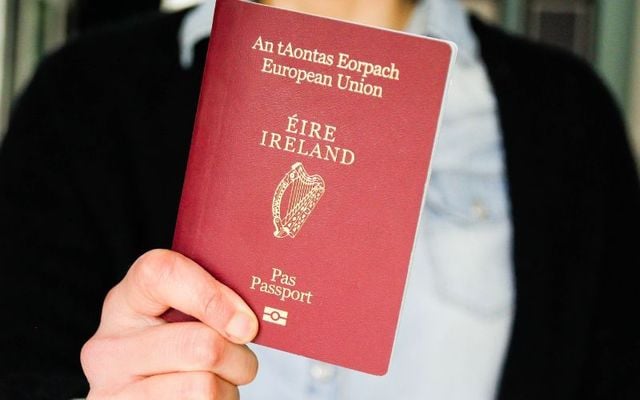An Irish passport has long been one of the most sought-after travel documents in the world, allowing visa-free access to 189 countries across the planet.
Here is a guide to acquiring an Irish passport and why it may be a good idea to get your hands on one.
Benefits of an Irish passport
It's kitschy but true: being Irish is seen as being more, well, likable or something.
Practical use of an Irish passport is that you will be entitled to work and travel freely in any of the 27 countries in the European Union. You won’t need a work permit for this and once you have worked in a European Union country for a certain length of time, you will be entitled to unemployment compensation, health care, and pension rights.
How then can you get an Irish passport?
Getting a passport is really the easy part if you qualify and there are many resources available that will help you through the process via the passport office's website or by contacting your local Irish embassy.
Depending on how you submit your application, you can expect to pay $80 (€75) for a ten-year Irish passport plus postage and packaging to get it to your home. The current waiting period is, according to the Irish passport office, six weeks once you've submitted your application. Emergency arrangements can be made but will incur additional charges.
Let’s look at the scenarios that allow you to claim Irish citizenship:
Born in Ireland
Anyone born in Ireland before January 1, 2005, is an Irish citizen. After that date, it is not automatic, and the citizenship and residency history of both parents is taken into account.
If you were born in Ireland after January 1, 2005, and at least one parent was an Irish citizen at the time, you are also an Irish citizen. This applies to the island of Ireland and to those who have a British parent or a parent who is entitled to live in Northern Ireland or the Irish State without restriction on their residency. It also applies to those born in Ireland whose parents have been granted refugee status in the country.
If your parents are foreign nationals and you were born after January 1, 2005, your parents will have to prove a genuine link to Ireland for you to gain citizenship e.g. having lived legally in Ireland for at least three years prior to your birth.
Irish citizen parents
Irrespective of your place of birth, if you have a parent who is an Irish citizen, you are also entitled to citizenship. This applies no matter how your parents acquired Irish citizenship (through birth, marriage, etc.) and applies whether or not your parents were married at the time of your birth.
Before you can claim citizenship, however, you must be registered on the Irish Foreign Births Register.
If one of your parents is Irish, and you would like to get an Irish passport, the process is easier. You need their marriage certificate; a current official I.D; a copy of their death certificate if your Irish parent has passed away, a full long-form birth certificate of your Irish parent, showing your grandparents’ names, places of birth and ages at birth.
You will also need your own long-form birth certificate; documentation to show that you have changed your name, such as a marriage certificate if this has happened; a notarized copy of your current passport and at least three other notarized copies of proofs of identity, one of which must be a photo I.D; a bank/utility statement with your current address; and two signed passport photos.
Irish grandparents
If your roots in Ireland go further back than your parents, then having a grandparent who is an Irish citizen and who was born in Ireland can help. Even if neither of your parents was born in Ireland, you may still claim citizenship through your grandparents.
After confirming that you have or had an Irish grandparent, the next thing to do is to call an Irish consulate and ask them to send you an application form. There are Irish consulates in most of the major U.S cities. They should also be able to advise you on getting the right documentation in order for your application.
You’ll need a copy of your grandparent’s birth certificate from Ireland. If you don’t have a copy you can get one from the General Registry Office in Dublin. (Click here to go to their website.)
You will also need your grandparent's certificate of marriage; your parents' birth and marriage certificates; and an original death certificate for any of these relatives who have passed away. If the grandparent is deceased, you’ll need to show a certified copy of their death certificate, and if alive, a current official I.D. (such as a driver’s license or passport.)
To access the Irish documents, it will help you to know as much information about where and when your Irish grandparent was born, which may involve some genealogy research.
It’s important to remember that unless at least one parent or an Irish-born grandparent was an Irish citizen at the time of your birth, you cannot claim Irish citizenship on the basis of extended previous ancestry or on any other relations in your family. In order for you to claim citizenship further back than your grandparents, your parent or grandparent must have been registered as an Irish citizen at the time of your birth.
Foreign Birth Register
To make things easier for future generations who may want to claim Irish citizenship, it's a good idea to register a foreign birth as early as possible to avoid any lapse in passing on citizenship.
If you wish to be included on the register, you can apply online here. To complete the application, a list of everything you will need can be found here.
Once approved to the register, you will receive a certificate confirming your entry to the Irish Register of Foreign Births. This certificate can be used as proof of Irish citizenship when applying for an Irish passport.
The registration process must be completed before you can apply for an Irish passport.
Naturalization
When you have lived in the State for a total of 5 out of the last 9 years, including the last full year before the date of application, you will be eligible to apply for Irish citizenship through naturalization. Unfortunately, this will not apply to any time you spent in Ireland studying or as a student as this is not seen as a “recognizable residence.”
The fee for an application for naturalization is $192 (€175).
When the certificate of naturalization is issued you pay a fee of $1,040 (€950).
Application forms and further information can be found on the INIS website.
Marriage to an Irish citizen
You are also entitled to Irish citizenship through naturalization if you are married to an Irish citizen (although this is not absolute).
To claim citizenship by marriage, you must meet the following conditions: you must be married to an Irish citizen for at least three years; you must have had one year of "continuous residence" on the island of Ireland immediately before the date of your application; and finally, you must have been living on the island of Ireland for at least two of the four years before that year of continuous residence. Altogether you must have a total of 3 years of recognizable residence out of the last 5 years.
The marriage must also be valid under Irish law.
What next?
Once you have established your Irish citizenship – which can take around six months to process – you can apply for an Irish passport. This can take up to six weeks to process and you can do this through your nearest Irish consulate.
And then, you too can sashay through the EU passport section at Dublin airport after the overnight flight from New York!
*Originally published in December 2013 and updated in January 2024 to reflect current application requirements.




Comments